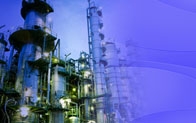Static Dissipator Additives
Enhance safety by preventing static charge build up
Safety must always be the number one priority when refining or handling fuels. When rapid fuel flow rates are combined with highly refined low sulfur fuels, electrostatic charges can quickly build up.
Slow dissipation can be a potential hazard, as a discharge from an electrically charged fuel to the side of the tank can ignite the fuel vapor, causing an explosion.
As fuels have become ‘cleaner’, the risks of electro-static ignition have increased. The high severity refinery processes used to remove trace materials from low sulfur fuels also reduce the natural conductivity of the fuel.
Innospec’s STADIS® brand is a class leading, non-metallic range of static dissipator additives (SDAs). At low concentrations (typically 0.5 to 3 mg/l), they increase the electrical conductivity of middle distillates, reducing the risk of electrostatic hazards.
The STADIS® range can be used to improve the conductivity of both ground and jet (aviation) fuels.
STADIS® has been setting the standard in static dissipators for more than 30 years; trusted for use in aviation fuel since 1983.
Our range includes:
STADIS® 450
STADIS® 450 is the premium static dissipator additive (SDA) in use today. It reduces the risk of static discharge and electro-static ignition at minimal treat rates.
STADIS® 450 the only SDA approved worldwide for use in civilian and military aviation turbine jet fuels. Its use is mandatory in most aviation turbine fuels for either civil or military use.
The additive is also widely used in ground fuels.
STADIS® 425
As today’s low sulfur fuels become increasingly less naturally conductive, it has become common practice to use static dissipator additive in ground fuel applications.
STADIS® 425 has been specifically designed for use in applications such as diesel fuels and gas oil.
Where a refiner manufacturers both ground and jet fuels, we recommend the sole use of STADIS® 450 in their refinery, to prevent the addition of an unauthorized SDA in the aviation fuel production.

